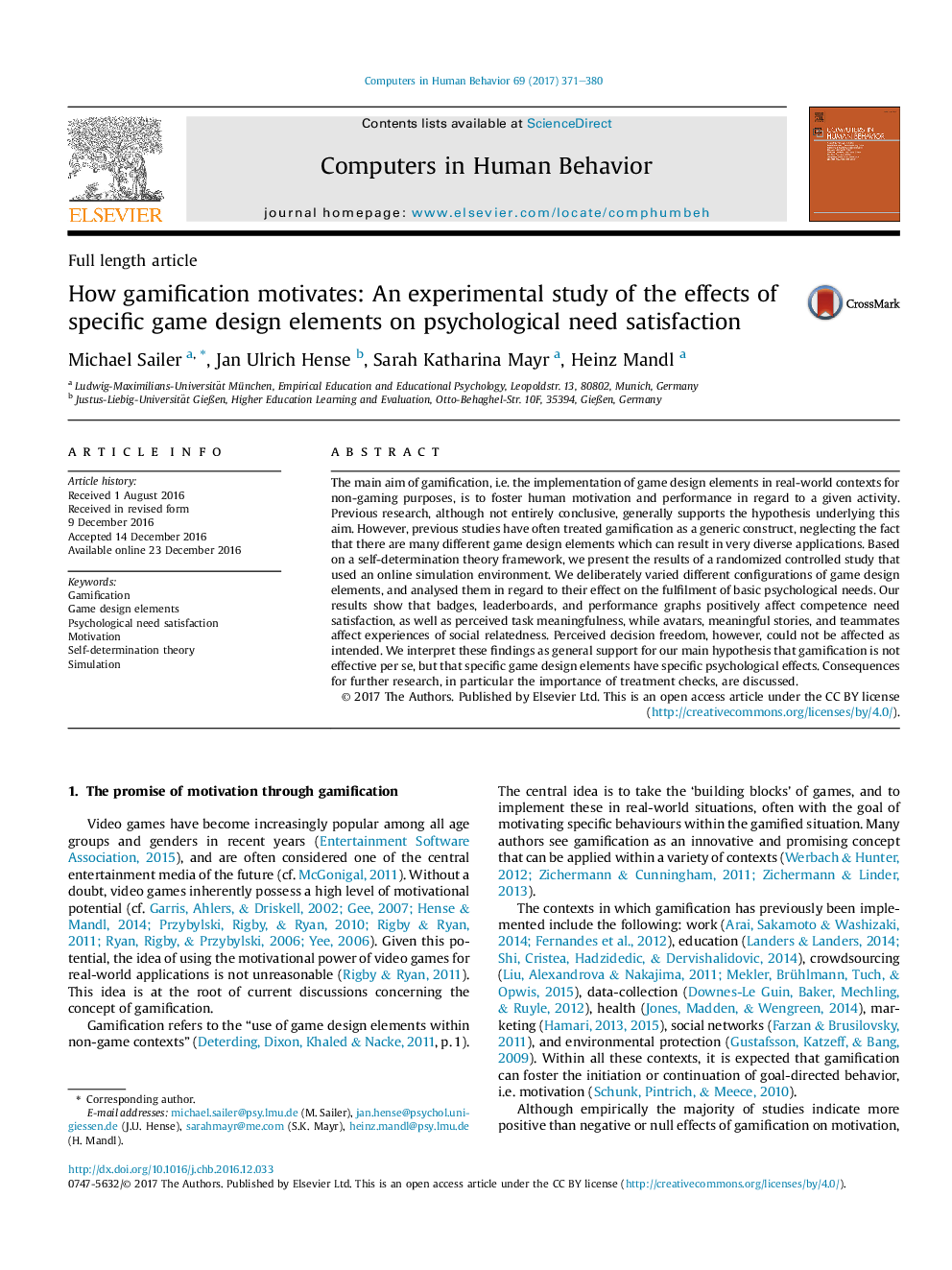| کد مقاله | کد نشریه | سال انتشار | مقاله انگلیسی | نسخه تمام متن |
|---|---|---|---|---|
| 4937645 | 1434622 | 2017 | 10 صفحه PDF | دانلود رایگان |
- Motivational effects of gamification are analysed from an educational psychology perspective.
- Gamification is not effective per se, but different game design elements can trigger different motivational outcomes.
- A self-determination theory framework was used to study the effects of different configurations of game design elements.
- Competence and autonomy regarding task meaningfulness was affected by badges, leaderboards, and performance graphs.
- Social relatedness was positively influenced by avatars, a meaningful story, and teammates.
The main aim of gamification, i.e. the implementation of game design elements in real-world contexts for non-gaming purposes, is to foster human motivation and performance in regard to a given activity. Previous research, although not entirely conclusive, generally supports the hypothesis underlying this aim. However, previous studies have often treated gamification as a generic construct, neglecting the fact that there are many different game design elements which can result in very diverse applications. Based on a self-determination theory framework, we present the results of a randomized controlled study that used an online simulation environment. We deliberately varied different configurations of game design elements, and analysed them in regard to their effect on the fulfilment of basic psychological needs. Our results show that badges, leaderboards, and performance graphs positively affect competence need satisfaction, as well as perceived task meaningfulness, while avatars, meaningful stories, and teammates affect experiences of social relatedness. Perceived decision freedom, however, could not be affected as intended. We interpret these findings as general support for our main hypothesis that gamification is not effective per se, but that specific game design elements have specific psychological effects. Consequences for further research, in particular the importance of treatment checks, are discussed.
Journal: Computers in Human Behavior - Volume 69, April 2017, Pages 371-380
